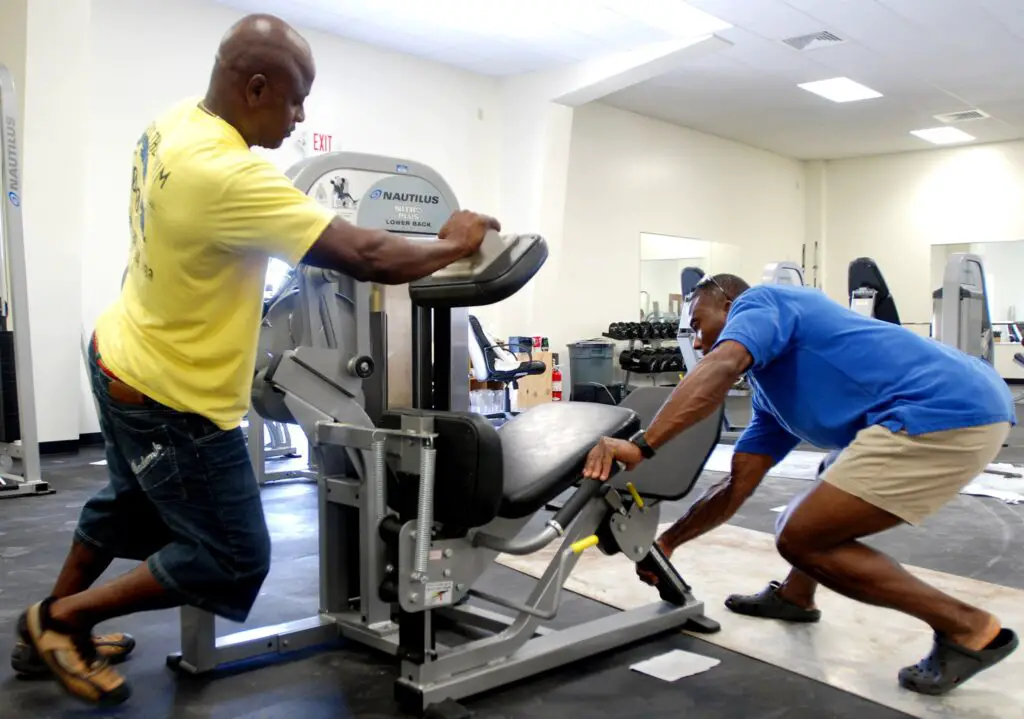At 23 years old, you’ve made it through a lot. You earned your high school diploma, got a few years of work experience, and some of your are even recent college graduates. After a few years of that division between the college student and the full time worker, the field of job opportunity has been leveled. Almost every 23 year old, college grad or not, must now face the job market head-on, and look for employment without the safety net of school underneath them.
Gone are the days when we could recommend internships, or exciting volunteer opportunities for you to buff up your resume and maybe make some extra cash on the side. Now, your job search is mostly, but hopefully not entirely, about the money. Whether you have a high school diploma, an associate’s degree, or a bachelor’s degree, you are after the one number that matters: median salary.
We’re here to help you work towards that high annual salary as soon as possible, but it wouldn’t be a Getting Started article if we didn’t help you up your professional skill level, and work towards more opportunities for job growth in the future.
Standing Out
Hopefully at this point you at least have a solid year or two of work experience under your bely, maybe more if you are not a recent college grad. One of the best things you can do to increase your annual salary is simply stand out in your current job, enough for your superiors to give you some extra money in your pay check or even a promotion.
Standing out at a summer job in high school was easy- all you had to do was show up, smile, and stay off of your phone for a few hours. The median hourly wage is a bit higher for you at 23, but so are the expectations of your employer. You’re not in a part time job anymore, so it’s time to stop putting in part time effort.
In Your Work

The first key to standing out in your workplace is by simply doing your job better than your coworkers. It may seem simple and obvious, but the ways in which you do it can be complicated, depending on the type of job you are in and the skill required to do it. As a new employee, it may be impossible for you to match the level of your coworkers- they simply have more experience than you do, and knowledge of the field that you can’t even try to match. But as the saying goes- if you can’t beat ’em, join ’em.
The knowledge gap, and the pay gap, between you and your more senior coworkers may seem immense, but many of them will be more than willing to help you close it. They all have knowledge of the field, the day-to-day operations of your job, that you don’t, but by cultivating relationships, paying close attention to their techniques, and asking them questions, you can begin to build up that knowledge for yourself, and work towards that higher average salary that is your end goal. Most real, hands-on knowledge in any field cannot be learned in a classroom, or replaced with your shiny new college degree. It is learned in the trenches, and passed down from one professional to the next in a vast chain of professional skill, each generation becoming better than the last.
Once you acquire some of the knowledge, skills, and experience from your fellow hard worker, you can begin to apply those things to your own work. See what others around you are doing, and try to find ways to do them just a little bit better. Your average hourly rate isn’t gonna go up instantly, but small details, good reports here and there, and a ready-to-learn attitude will eventually be noticed by your superiors, and compensated for in your median salary.
In Your Relationships
No, we’re not here to nitpick over your dating life (that section comes later). Your professional relationships are a key component to your career success, both in your current job and your searches down the road. The job market can be a scary place, but having excellent communication skills and a solid network of professional connections can get you through any search, and help you find those good paying jobs for 23 year olds that you are looking for.
Since the days of high school and minimum wage jobs, the Getting Started series has constantly preached about the value of professional connections. The impressions you made on your boss at a summer job six years ago may not matter now, but did their recommendation help you find another opportunity? Whether it seems like a waste of time or not, forming those relationships and building that network is essential at every stage, and never more so than right now.
Now that you are in a field that you want to work in for the rest of your career, or at least one adjacent to it, these connections will impact you for the rest of your working life, way more than any diploma ever could. The key to forming solid, meaningful professional relationships is to be genuine. If you have an outgoing personality, and love to connect with people, simply be yourself. If you don’t feel as good about making connections with people, simply fake it until it is genuine (it sounds dumb, but it works).
Adjusting to Independence
Whether you were recently a college student or not, at the age of 23 it is very likely that you are close to becoming fully independent, if you have not already. You may now be responsible for a great many things that you were not before- food, rent, complete time management, and maybe even the dreaded student loans. Like it or not, this weight is now on your shoulders, but taking care of yourself is not as frightening of a task as it may seem to be.
Time Management
At first, having to manage your own schedule all day, every day may seem like a daunting task. You may have a full time gig, a part time job or online job, and personal relationships to balance, and it seems like there are never enough hours in the day. All of those social media businessmen tell you that the pay gap is simply a difference in time put in, that the 90th percentile of earners got there by sleeping four hours a night and working the other twenty-four (yes, we can add). But life doesn’t have to be all about your salary, and spending every waking hour trying to make a little bit of extra cash is no way to live.

Making a daily routine and sticking to it is one of the easiest ways to create more time for yourself. By following roughly the same schedule on most days, you can find the places where you are losing or wasting time, and turn those either into personal time for yourself or a chance to make some extra money on the side. An online job with a flexible schedule is great for filling in those gaps. You may have an hour train ride to and from work every day that you can use to write articles as a freelancer, or a break between meetings to come up with ideas for a side consulting gig.
Money Management
Managing your own finances is probably the hardest thing about becoming totally independent. There can be so many expenses to keep track of: student loans, health care, insurance, food, and many more, and all of those must be squeezed within your average hourly rate that you make in a week.
Learning how to manage your own money can go a long way towards helping you save it. If you are not a college graduate, or have never taken any personal finance courses, taking the time to learn the basics is absolutely a worthwhile pursuit- you don’t need a master’s degree to manage your money. We have some basic tips in the 21 Year Olds installment of Getting Started, but if you need more help managing your finances, we recommend you do some online research or take a course at a local school or community center.
Good Paying Jobs for 23 Year Olds
Finding a high paying job at 23 can be difficult, but there are plenty of employment opportunities out there with good starting pay and opportunities for job growth and advancement.
Investment Banking: One great opportunity for a young college grad is becoming an investment banker. There may be a few investment banking positions open to individuals with just a high school diploma, but most of these will require at least an associate’s degree, likely a bachelor’s in finance or a similar subject. The employment rate in this field is usually pretty good, and there is high demand for young workers to work at many IB firms. You may not become a millionaire immediately, but working as an investment banker at this age will give you a nice median salary to begin with, and plenty of opportunities for job growth in the future.
Real Estate: Becoming a real estate agent can be a great path for many 23 year olds, giving you incredible work and sales experience, and opportunities to make a nice average salary. You will have the chance to work on building relationships with clients, and pick up lots of knowledge about the field. It is likely that as a younger employee you will start out with an existing agency, but as you pick up experience and expertise, you may be able to open your own one day.
Construction Management: Becoming a construction manager is a fantastic opportunity, especially for individuals with only a high school diploma or associate’s degree. You can become a construction manager with a bachelor’s degree or a master’s degree, but many of these positions require less educational experience, focusing more on your skill level and management capabilities.
Graphic Design: Another great opportunity for either a full or part time job as a 23 year old is becoming a graphic designer. These jobs require artistic and visualization skills, but often don’t have huge educational or work experience requirements. You can find online graphic design gigs, so that you can keep a full time job, while being a graphic designer on the side for extra money.
There are many other great jobs out there, from dental hygienist or radiation therapist to air traffic controller or registered nurse, most of which we discussed in the 20 Year Olds edition of Getting Started.
Every year, and every job, is a chance for you not only to earn a nice paycheck, but to build up your resume and your professional skills. You can always improve your professional future, as it is never too late to make yourself into a better candidate. As you continue your professional journey, check out the rest of our Getting Started series– each article contains invaluable information for all young workers, not just those included in the age bracket.